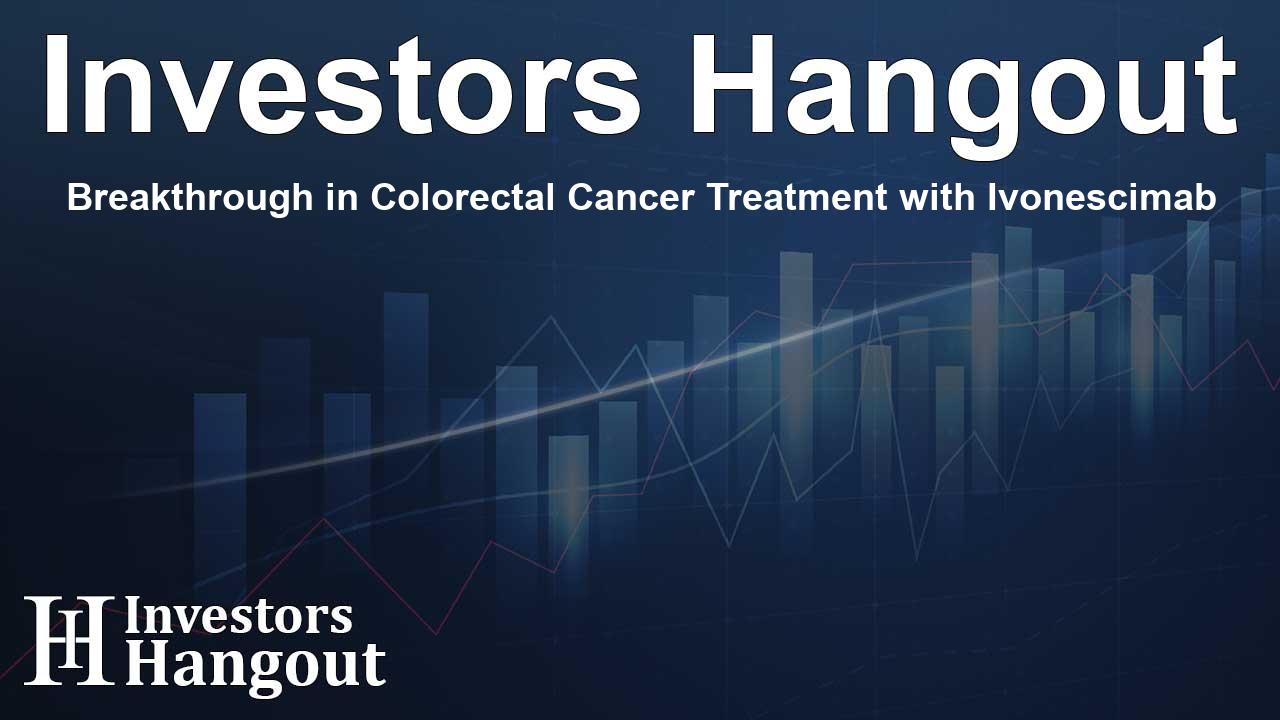Breakthrough in Colorectal Cancer Treatment with Ivonescimab

Akeso Unveils Promising Data for Ivonescimab in Cancer Treatment
At the recent European Society for Medical Oncology (ESMO) Conference, Akeso (9926.HK) introduced groundbreaking efficacy data for its innovative PD-1/VEGF bispecific antibody, ivonescimab. This antibody is being studied either alone or in conjunction with the ligufalimab (anti-CD47 antibody AK117), paired with FOLFOXIRI, as a first-line treatment option for metastatic colorectal cancer (mCRC). This marks a significant development in cancer therapeutics, especially since the introduction of new treatment options can create a shift in standard practices.
Challenges with Current Treatments for mCRC
Colorectal cancer is a complex disease, particularly when dealing with microsatellite stable (MSS) and mismatch repair proficient (pMMR) tumors. Historically, these tumors have been viewed as "immunological deserts," which offer little response to immunotherapy. Accordingly, standard treatment protocols for MSS/pMMR mCRC have depended on chemotherapy combined with agents like bevacizumab or cetuximab. However, the results with these therapies have typically been underwhelming, demonstrating limited therapeutic benefits for patients.
Impressive Findings from the Study
During the conference, Professor Yanhong Deng from the Sixth Affiliated Hospital of Sun Yat-Sen University, who served as the principal investigator for the study, shared the results of the clinical trials. As of the latest assessments, the median follow-up for the group receiving ivonescimab in conjunction with ligufalimab and FOLFOXIRI was 9.6 months. For those treated with ivonescimab and FOLFOXIRI, it was a bit shorter at 9.0 months. The study's outcomes reflect a high level of anti-tumor activity and effective disease control for MSS/pMMR mCRC when these treatment regimens are employed.
Performance Metrics and Safety Considerations
A notable aspect of these findings is the objective response rate (ORR)—a crucial metric for evaluating how well a treatment works. For mCRC patients receiving ivonescimab in conjunction with FOLFOXIRI, the ORR reached an astounding 88.2%, while the disease control rate (DCR) stood at a perfect 100%. A median follow-up of 9.6 months revealed that the median progression-free survival (mPFS) has yet to be established, but an impressive 9-month PFS rate was recorded at 86.2%.
Further Insights on the Combination Therapy
Among those treated solely with the ivonescimab and FOLFOXIRI combination, the ORR was still robust at 81.8%, maintaining a DCR of 100%. This group demonstrated a median follow-up of 9 months with an anticipated mPFS yet to be determined but showing a promising 9-month PFS rate of 81.4%. Both combinations have proven to exhibit manageable safety profiles, with treatment-related adverse events being quite tolerable.
Future Directions for Ivonescimab
The encouraging results presented suggest a favorable avenue for further exploration of ivonescimab as a viable treatment option, whether used alone or in combination with ligufalimab and chemotherapy for first-line therapy in MSS/pMMR mCRC patients. Akeso's commitment to advancing research in immunotherapy could pave the way for new clinical standards.
Frequently Asked Questions
What is ivonescimab?
Ivonescimab is a PD-1/VEGF bispecific antibody developed by Akeso, aimed at treating metastatic colorectal cancer.
What were the main findings regarding ivonescimab?
The clinical trials showed high objective response rates and disease control rates, indicating promising effectiveness for patients with mCRC.
Who presented the findings at the ESMO Conference?
Professor Yanhong Deng, a principal investigator from the Sixth Affiliated Hospital of Sun Yat-Sen University, delivered the findings at the conference.
What is the significance of the disease control rate?
Disease control rate (DCR) indicates the percentage of patients whose cancer shrinks or remains stable after treatment, signifying effective response to the therapy.
What are the implications for the future of colorectal cancer treatment?
The data collected on ivonescimab indicates a shift in treatment potential for mCRC, encouraging further evaluations and clinical application.
About The Author
Contact Henry Turner privately here. Or send an email with ATTN: Henry Turner as the subject to contact@investorshangout.com.
About Investors Hangout
Investors Hangout is a leading online stock forum for financial discussion and learning, offering a wide range of free tools and resources. It draws in traders of all levels, who exchange market knowledge, investigate trading tactics, and keep an eye on industry developments in real time. Featuring financial articles, stock message boards, quotes, charts, company profiles, and live news updates. Through cooperative learning and a wealth of informational resources, it helps users from novices creating their first portfolios to experts honing their techniques. Join Investors Hangout today: https://investorshangout.com/
The content of this article is based on factual, publicly available information and does not represent legal, financial, or investment advice. Investors Hangout does not offer financial advice, and the author is not a licensed financial advisor. Consult a qualified advisor before making any financial or investment decisions based on this article. This article should not be considered advice to purchase, sell, or hold any securities or other investments. If any of the material provided here is inaccurate, please contact us for corrections.
